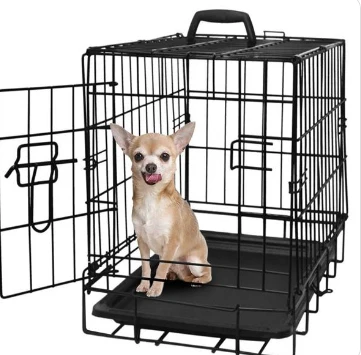
Dec . 14, 2024 12:37 Back to list
Effective Fencing Solutions for Keeping Horses Safe in Open Fields
Field Fence for Horses A Comprehensive Guide
When it comes to keeping horses safely contained and secure, a reliable field fence is paramount. Horses are magnificent creatures, but they are also known for their curious and sometimes unpredictable nature. Therefore, choosing the right fencing can mitigate risks associated with escapes and injuries. In this article, we'll explore the various aspects of field fencing for horses, including types of fencing materials, installation considerations, maintenance, and safety tips.
Types of Fencing Materials
1. Wood Fencing Wooden fences are traditional choices for equine enclosures. They offer a sturdy and aesthetic option, adding charm to any pasture. Common designs include board fencing and post-and-rail fencing. However, wooden fences require regular maintenance, such as painting or staining, to protect against weather and decay. They can also be prone to splintering, which may pose a risk to horses.
2. Vinyl Fencing Vinyl fencing has gained popularity in recent years due to its durability and low maintenance needs. Unlike wood, vinyl doesn’t require painting, and it is resistant to rot and insect damage. Available in various styles and colors, vinyl fencing can mimic the look of traditional wood without the associated upkeep. However, it can be more expensive initially compared to wood fencing.
3. Wire Fencing Wire fencing, including electric fencing, is another viable option. Barbed wire is not recommended for horses as it can cause serious injuries. Instead, high-tensile wire or fencing made specifically for horses, such as coated wire or rope, is preferable. Electric fencing can be effective for creating secure boundaries while being relatively easy to install. However, caution is needed to ensure it's properly maintained and functioning to avoid accidents.
4. Mesh Fencing Mesh fencing provides a strong visual barrier and is effective in keeping horses safely contained. It is often made of a combination of wire and additional materials for increased visibility and strength. Mesh fencing can be useful in areas where horses may be prone to rushing or rearing, as it offers more give than rigid fencing.
Installation Considerations
field fence for horses

Proper installation is crucial for any fencing solution. Terrain, soil conditions, and climate all play a role in how a fence should be constructed. The ideal height for a horse fence is typically 4.5 to 5 feet, ensuring that it is tall enough to discourage jumping. It's also vital to ensure that posts are sunk deep enough into the ground—at least 2 feet—to maintain stability.
A fence line should be clear of debris and overhanging branches that could potentially fall and damage the fence or cause injury to the horses. Regular checks during the installation phase can help to identify and eliminate these hazards.
Maintenance
Maintaining a field fence is essential for both longevity and safety. Regular inspections for any signs of wear, damage, or decay can prevent larger issues down the line. Wooden fences may require periodic staining or painting, while vinyl and metal fences should be checked for rust or cracks. Electric fencing should be inspected often to ensure it's functioning properly and that the charge is sufficient.
Safety Tips
1. Regular Checks Always perform routine inspections of the fence, especially after storms or extreme weather. 2. Clear Perimeter Keep the area around the fence clear of debris, sharp objects, and overhanging branches. 3. Plan for Safety Use materials that minimize injury risk—avoid sharp edges and splintering surfaces. 4. Train for Respect Train horses to respect the fence boundaries to reduce the likelihood of attempts to breach them.
In conclusion, choosing the right field fence for horses is a critical investment in their safety and well-being. Whether opting for wood, vinyl, wire, or mesh, understanding the unique characteristics and needs of your horses can guide you to the best choice. By ensuring proper installation and maintenance, you can enjoy peace of mind knowing that your equine companions are safely contained in their environment.
-
Why a Chain Link Fence is the Right Choice
NewsJul.09,2025
-
Upgrade Your Fencing with High-Quality Coated Chicken Wire
NewsJul.09,2025
-
The Power of Fence Post Spikes
NewsJul.09,2025
-
The Best Pet Enclosures for Every Need
NewsJul.09,2025
-
Secure Your Property with Premium Barbed Wire Solutions
NewsJul.09,2025
-
Enhance Your Construction Projects with Quality Gabion Boxes
NewsJul.09,2025
Products categories











